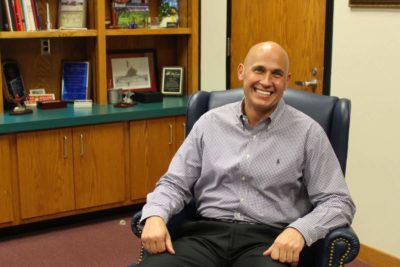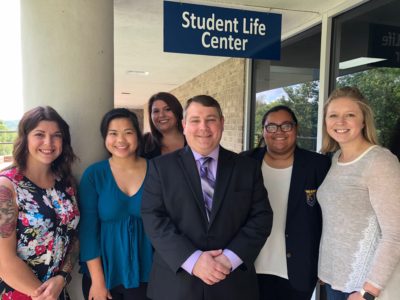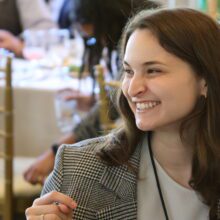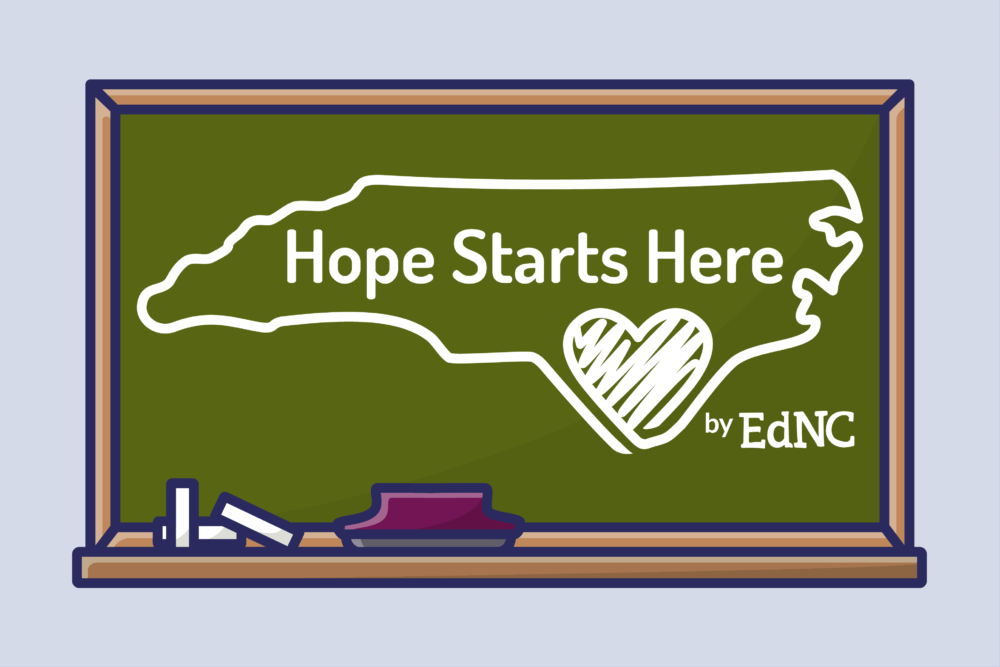Last week, I interviewed Audrey Jaeger, executive director of the Belk Center for Community College Leadership and Research, for my podcast Hope Starts Here. Below, you’ll find a portion of that interview. It has been edited for length and clarity. Listen to the full episode here.
Alli Lindenberg: To start, can you share your name and what you do?
Audrey Jaeger: Absolutely. I’m Audrey Jaeger, and I go by AJ. I serve as the executive director of the Belk Center for Community College Leadership and Research at NC State and am a professor in the College of Education.
AL: Can you tell our listeners a little bit about what the Belk Center is and what it is that you all do?
AJ: Absolutely. The Belk Center is a part of NC State. We develop and sustain exceptional community college leaders. We seek their commitment to advancing college access, economic mobility of students, as well as the economic competitiveness of their regions. So, when we think about developing leaders, those leaders include all of those components.
In addition, though, the Belk Center also conducts research, and that research is focused on addressing emerging student success challenges facing community college leaders. And when we think about leaders, we’re also thinking about both presidents and trustees.
Related reading



AL: How did you get involved with this work?
AJ: I came to NC State quite a while ago, actually going on 20 years this fall. And prior to seeking a faculty position, I was working in colleges and universities in student and academic affairs positions, working in areas such as academic advising and community service. I was recruited to NC State to start a student affairs graduate program, and spent over a decade doing that. Then I had the opportunity when our dean asked me to lead this program called envisioning excellence for community college leadership.
AL: How has your work changed due to COVID-19?
AJ: Well, this past March, we had a President’s Academy gathering, one of the things the Center does in support of community college leaders. It gathers leaders together to talk about critical issues and develop strategies around those critical issues. We had this gathering in March and it was incredibly successful. We had over 40 presidents and their executive teams engage with us in two parts of the state.
The presidents came with their teams and spent two days with us identifying the problem, designing an action plan, and really moving their conversation forward around student success. And we received just exceptional feedback. Folks appreciated the structure, they appreciated the data, they appreciated the opportunity to engage in this thinking away from their campuses. So we were coming off this incredibly successful event and then less than a week later, COVID-19 hit.
It’s interesting because it’s not easy to have leaders think about long-term strategic plans in the middle of a crisis. And in fact, it’s probably not the most relevant thing to be doing. We are fortunate that we had these really strong relationships with our presidents and the North Carolina Association of Community College Trustees.
We just reached out to a group of our advisory presidents who help us think about our work and we received their opinions, their ideas, their suggestions about what we should be doing, and we immediately moved in that direction.
We heard from our presidents that faculty were supported by their institutions in terms of this remote learning. But, all faculty moving all their courses online all at the same time was difficult for institutions to support.
So, we stepped in and provided webinars for community college faculty about how to move their course content online, how to engage different learning management systems, how to use technology to support their school, and how to better communicate with students online. We were providing webinars that are currently averaging about 200 participants on each webinar. So we knew that, as the presidents said, faculty across the state of the 58 community colleges needed additional support to do what they were doing and do it immediately.
Sign up for Awake58, our newsletter on all things community college.
AL: When you think about community college presidents, what do you think are the most important skills they need today both in relation to COVID-19 and also just more generally?
AJ: Well, first, I think about how much I admire the role that they have and how extremely difficult it is. They’ve chosen this career service at the most important level — at the local level where the challenges and the successes are so immediate and personal. So I’m extremely grateful for all the work that they’re doing and really admire and respect that work.
In terms of skills — both prior to, during, and through the pandemic — it’s important that leaders have the tools to make very fiscally responsible decisions. In the pandemic, it is even more relevant as resources are likely to decline. Making really good decisions and knowing how to develop additional resources, where to seek additional resources, and how to think about additional resources is really critical.
But going hand in hand with that, I think, is the ability to develop partnerships in regions across the state, across educational and business sectors, because we’re all facing similar kinds of things.
And so having the opportunity to work across sectors, it’s going to be essential for everyone to move to whatever the new normal is. And then I also think, both in our current situation, but clearly both before and after a crisis, presidents need to be really strong communicators. And one of the things that our survey is addressing is how our leaders are communicating and they want to know if they are doing a good job communicating. Communicating is that foundation of a really positive, strong culture which helps institutions move forward.
AL: What has been the most challenging part of your role over the past two years?
AJ: Our challenges are also our biggest opportunities. And that’s to provide the right resources and support at the right time to our presidents so that they can meet their goals. And now, in these most impressive unprecedented times, it’s to be able to provide to them the things that they need when they need them.
AL: What has been the most exciting part of your role?
AJ: It is absolutely working with the individuals. I feel very fortunate we have a strong relationship with the North Carolina Association of Community College Presidents. But with individual presidents, it’s been the most exciting part. I’ve said in different venues that the presidents are our “north star,” they really guide our work and that just gets me excited when I have the opportunity to engage with them and know that I’m contributing and supporting their work.
But it’s also working with our partners, the North Carolina Community College System office, the North Carolina Association of Community College Trustees, the John M. Belk Endowment, and your organization, EdNC. It’s just an exceptional collection of people and organizations with whom I have the opportunity to work and our collaborative goal to help community colleges help students be successful is so powerful. It’s incredibly exciting.

